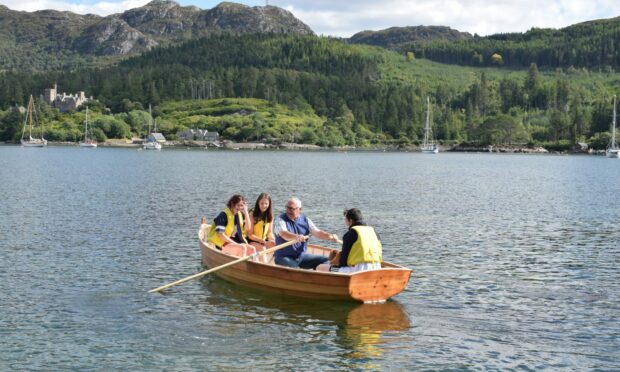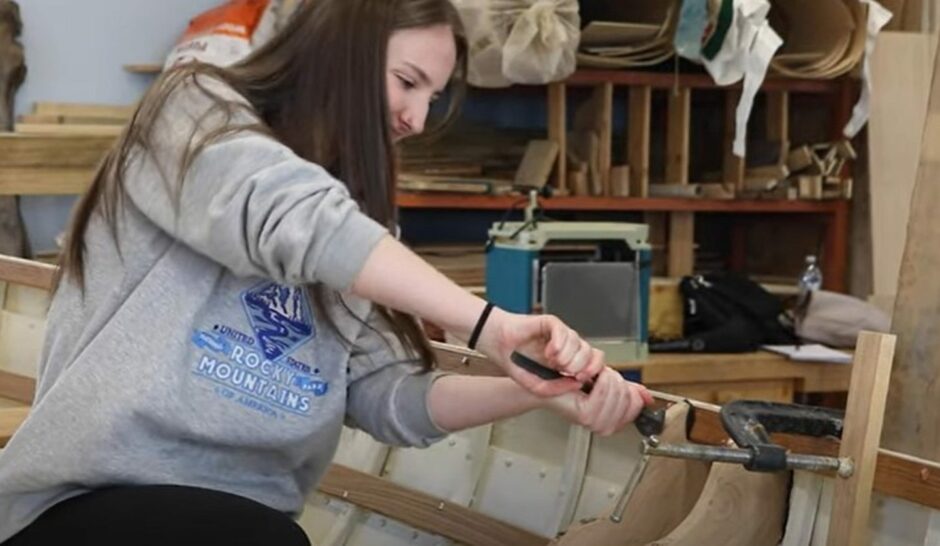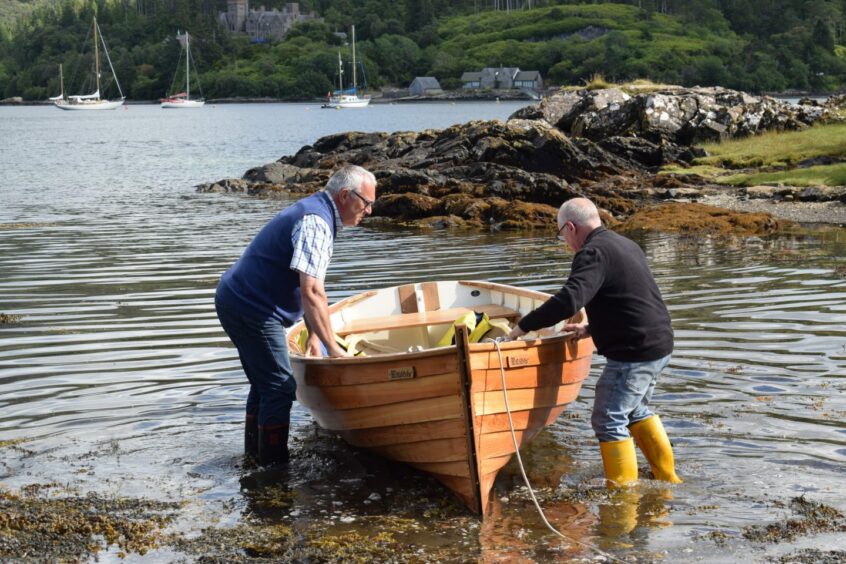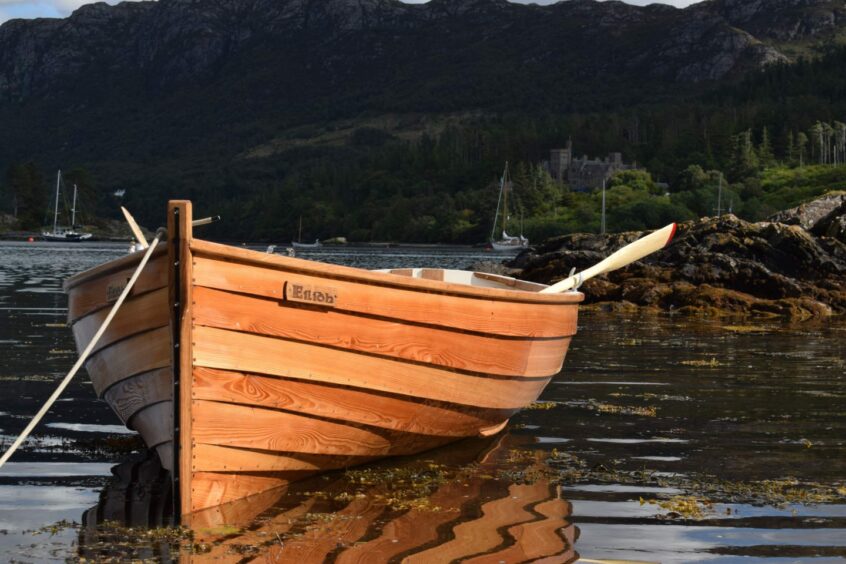Not many high school pupils can count building a working boat as one of their school highlights, but Plockton students can.
The innovative Am Bàta project sees pupils work with local boat builder Mark Stockl to design, build and deliver traditional boats.
It all started in 2007, when the owners of nearby Duncraig House offered to donate a large pile of larch timber to the school.
However, they didn’t want any old project. They wanted something big and meaningful. And from that catalyst, Am Bàta was born.
Now 15 years on, it continues to inspire pupils and forge stronger links between the school and the community.
Some pupils choose the course just for the experience. With everything forged by hand, it’s a dying art and a fascinating diversion from the more formal curriculum.
For others, it helps to open doors into a range of different careers. One pupil hopes to apply her boat building skills to make musical instruments.
Another says it will help him pursue his trade as a joiner.
Either way, it’s a unique opportunity described by tech teacher Neil Jardine as a “privilege”.
‘You spend a lot of time with a chisel’
Am Bàta is an SVQ-accredited course that runs annually at Plockton High School, on the north west Highland coast.
Every year, the school invites pupils to sign up, and Mark Stockl has dedicated two days a week from the very beginning.
Working from a special boat shed on the school grounds, he teaches pupils to craft boats the old-fashioned way, primarily relying on hand tools.
“You spend a lot of time with a chisel, trying to get something nice and flat rather than just putting it through a machine,” says pupil Sandy MacInnes. “I want to be a joiner when I leave school so I think it will be helpful to practice learning to work wood.”
Mr Jardine says the project delivers a range of skills for the youngsters.
“It has a sense of being a bit different – you might call it a privilege,” he says. “The whole experience is really useful. It’s about time management, it’s about meeting customers’ needs, working to deadlines.
“All that happens in classes, but because it’s not a class and not led by a teacher in a school, it has a very different feel about it.”
Eilidh takes to the water
Plockton’s very first boat project – which started out as a pile of larch at Duncraig House – now has a new life with Plockton Small Boat Sailing Club.
Their latest creation – Eilidh – was custom-built for a family in Broadford and launched at a community event in September.
The annual boat launch has become a staple in the local calendar, attended by primary and secondary pupils as well as local groups. Past and current boat building students are invited along. If there are enough numbers, the school puts on a small barbecue and party to catch up with former pupils.
Neil says the course attracts a broad range of students. Many go into skilled jobs such as joinery and engineering. It’s also popular with pupils attending the National Centre of Excellence in Traditional Music. Many of these pupils are academic high fliers and see Am Bàta as a unique experience and an important part of their cultural heritage.
Isabel Maclean says it’s an exciting prospect. “It’s really unusual and I’m so glad I have the opportunity to take part,” she says.
Isabel hopes to make musical instruments, and has a particular interest in the clarsach, a Celtic harp.
“The makers I’m interested in have all previously been boat builders and they say you can learn a lot of the skills that you need from doing boat building,” she says.
From Plockton to Hawaii and back again
Neil points to strong connections between the traditional craft and the area’s rich cultural heritage and oral history. In this sense it binds the community together across generations.
This summer, science teacher Andrew McGrath welcomed a delegation of visitors from Hawaii as part of an unusual cultural exchange. “Drew visited Hawaii a few years ago to learn about the overlaps in a life lived by the sea,” explains Neil.
“This year he had 20-odd people spend the day with us and learn some of our boat building techniques in the workshop. It’s created a really unique connection that can grow over time.”
The future of the course looks hopeful, with funding secured from Highland Council and a solid income from boat sales.
“We are very grateful to the council for supporting Am Bàta because it’s taken away the ever-present menace of funding,” says Neil. “Now we have more security to focus on really enriching the course.”
Am Bàta not only provides an SVQ qualification for pupils, but also adds something special to college and university applications, or CVs.
“We had one student applying to a course at Edinburgh University with 200 applicants,” says Neil. “When he attended the interview, the panel immediately asked him about the boat building project. So it’s a bit of a unique selling point.”
Former student Ross Sproule took the course in sixth year and says he still feels a strong sense of achievement.
“It’s a great satisfaction to say ‘I made that’, at the end of the day.”
Watch more of the Plockton boat building project below
More from the Schools & Family team
Teacher strike: Highland and island schools and nurseries latest to announce closure
Mock COP27: North students stand in the face of a ‘scary’ future
Am I taking advantage of Granny and Grandad for ‘free childcare’?





Conversation